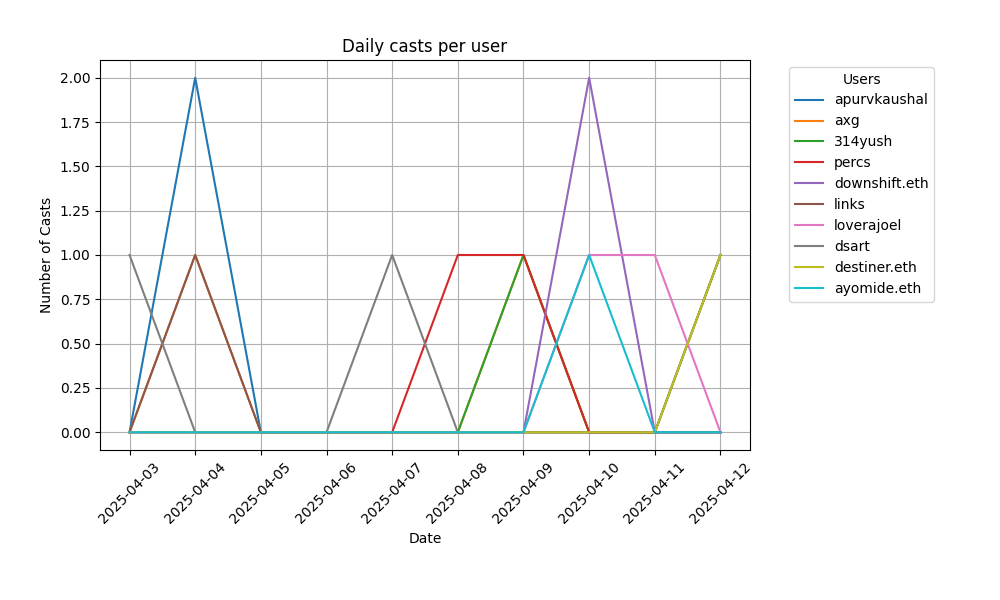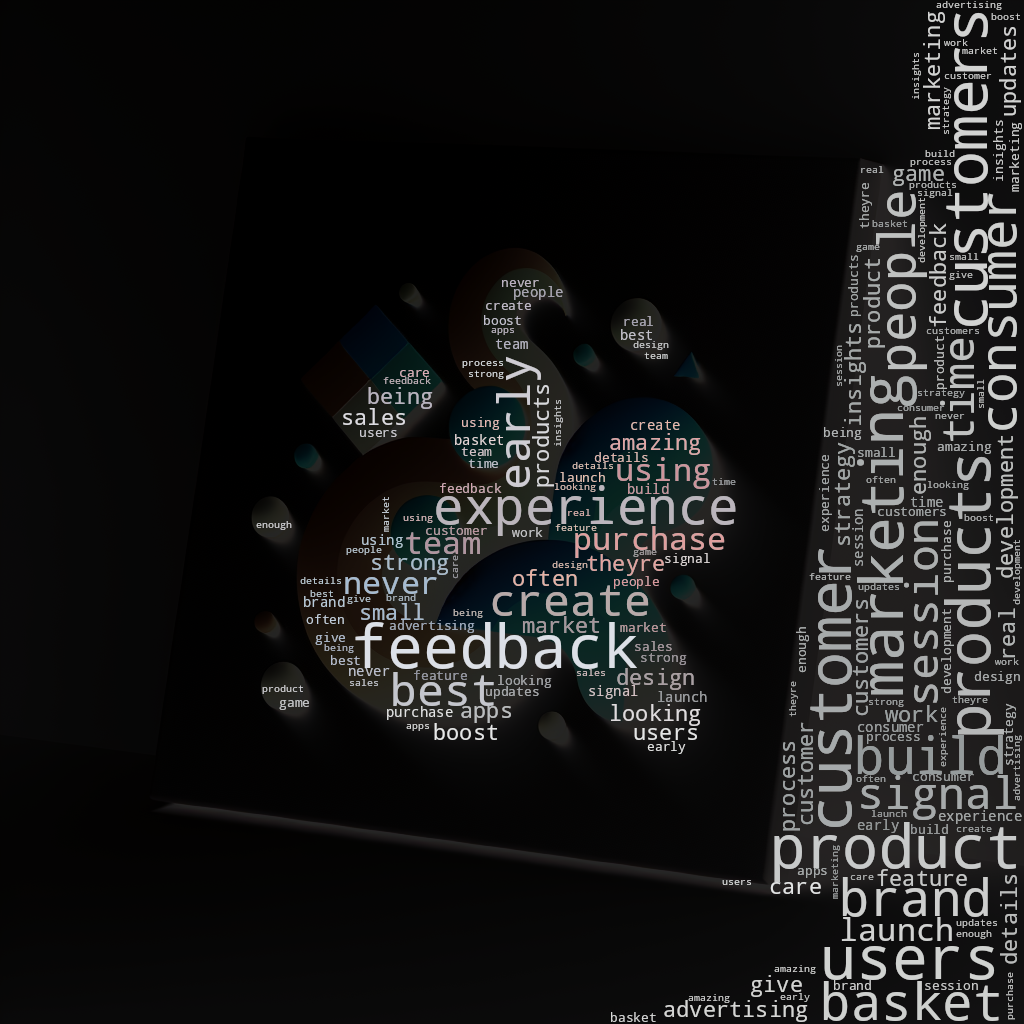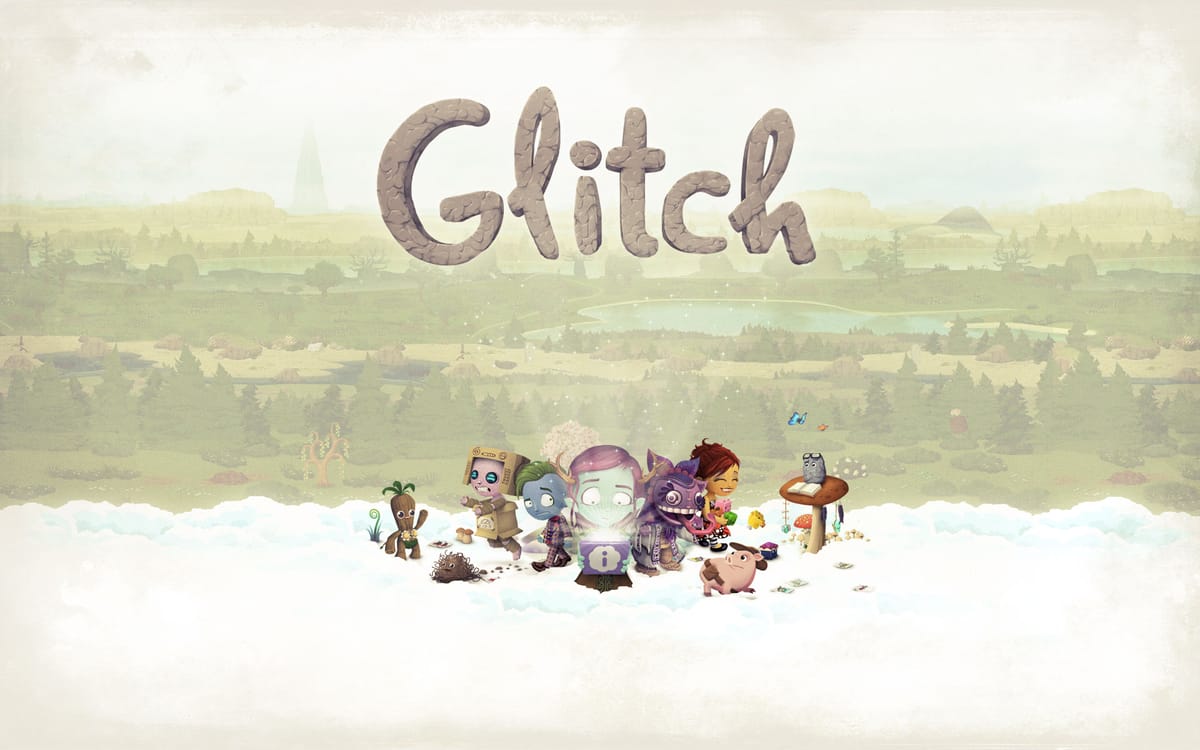
Product
/product23727
A place to talk about software products and the craft of building them
Find your true north star,
Early users show the way,
Product-market fit.
Early users show the way,
Product-market fit.
someone tell google we're almost never searching for closed restaurants
Left: Chat GPT UI / Right: Perplexity UI
"what's on the Agenda today" vs. "What do you want to know?"
Chat GPT keeps it clean and clear, Perplexity has started adding Weather and News.
which one do you prefer?
"what's on the Agenda today" vs. "What do you want to know?"
Chat GPT keeps it clean and clear, Perplexity has started adding Weather and News.
which one do you prefer?
I don't know if it's because I'm a millennial, but I will just always use Gmail. The other email app I used a lot was Spark, and that was because of work collaboration.
https://x.com/NotionHQ/status/1912160088749674711
https://x.com/NotionHQ/status/1912160088749674711
I could click 6 of these options, but am only allowed one. Surely I'm not alone, especially for a novel AI-enabled product like this!
How much richer the picture of their customers they could get if they could let go of a myopic methodology. Sacrificing clarity in order to fit the internal data model.
How much richer the picture of their customers they could get if they could let go of a myopic methodology. Sacrificing clarity in order to fit the internal data model.
if you’re wondering whether you have pmf, you probably don’t
https://x.com/blader/status/1911869741721141411
https://x.com/blader/status/1911869741721141411
Product development looks more like bowling alleys.
You can have good bumper rails to nudge the user down the aisle in hopes to get a strike. We want everyone to get a strike but we know it doesn't happen so easily.
Or you can luckily land a great user that just throws that ball down with no bumpers and BAM!
You can have good bumper rails to nudge the user down the aisle in hopes to get a strike. We want everyone to get a strike but we know it doesn't happen so easily.
Or you can luckily land a great user that just throws that ball down with no bumpers and BAM!
cherish the pre-PMF phase
https://staysaasy.com/startups/2023/10/18/thoughts-on-product-market-fit.html
https://staysaasy.com/startups/2023/10/18/thoughts-on-product-market-fit.html
One thing I’m really excited about is the idea of interopable memory layers in AI tools. OpenAI’s memory, for instance, already does a great job of understanding me, my preferences, my tone, how I think. Now imagine if that memory layer were interoperable. Something you could carry with you across different apps. “Log in with OpenAI"
It’s similar to what @farcaster is doing with portable social identity—your presence, reputation, and relationships follow you across different interfaces. But now, layer on top of that: you, as a digital person, complete with memory, preferences, and behavior patterns. This opens the door to deep personalization across platforms. It could replace onboardings or cold starts.
It’s similar to what @farcaster is doing with portable social identity—your presence, reputation, and relationships follow you across different interfaces. But now, layer on top of that: you, as a digital person, complete with memory, preferences, and behavior patterns. This opens the door to deep personalization across platforms. It could replace onboardings or cold starts.
is there anyone who actually likes the magic link signin pattern?
Mistral AI is flying under the radar! Fast, efficient, and privacy-focused, it might just be the product dev tool you're overlooking. Anyone using it?
Big shoutout to @apurvkaushal, @axg, and @314yush for keeping the /product vibes strong! Your insights and activity make this space awesome. Keep crushin' it! 🚀

Chat, I just made Dia my default browser!
15255
Ayo Of Heaven
@ayomide.eth·22:41 29/10/2024
This video has been the chatter of the town in the past week. What do you genuinely think of Arc (the browser and the company)?
https://www.youtube.com/watch?v=E9yZ0JusME4&t=62s
https://www.youtube.com/watch?v=E9yZ0JusME4&t=62s
Is prioritizing user feedback essential for product success, or can strong marketing overshadow it?

About a month ago we had an idea to solve our own problem — getting better at sharing progress and building publicly.
Last Friday we got the first MVP working. It looks bad, but feels so freaking good.
Little thread about what's been happening these last few weeks
Last Friday we got the first MVP working. It looks bad, but feels so freaking good.
Little thread about what's been happening these last few weeks
193930
ilya
@ilyat·17:31 19/03/2025
Following my previous cast about new product experiments. We've been building something new for the past week. It's called ⌘ INTERN.
1/ What is this? ⌘ INTERN is an experiment in AI-powered content surfacing.
2/ Problem: Most founders are too busy building to document their journey. Not because they lack insights, but because they lack a system to capture them.
3/ Solution: AI that runs alongside you, turning daily work into meaningful content—no extra effort required.
4/ Progress: 5 days in
• Tested 5 AI models
• Generated 59 high-quality pieces
• Running this very experiment through the system
5/ Follow along as we build
Everything you see tagged "Surfaced by ⌘ INTERN" is content the system found in our logs.
1/ What is this? ⌘ INTERN is an experiment in AI-powered content surfacing.
2/ Problem: Most founders are too busy building to document their journey. Not because they lack insights, but because they lack a system to capture them.
3/ Solution: AI that runs alongside you, turning daily work into meaningful content—no extra effort required.
4/ Progress: 5 days in
• Tested 5 AI models
• Generated 59 high-quality pieces
• Running this very experiment through the system
5/ Follow along as we build
Everything you see tagged "Surfaced by ⌘ INTERN" is content the system found in our logs.
Designed a shoe sizing and search app in my bootcamp. Vibe coding it seems like a real opportunity I should seize.
The cost of returning items purchased online that don’t fit, don’t fit the description or are straight up made with materials no human should wear or use, is astounding. The money we could save by getting this right is in the billions. Inefficiency leads to customer churn and brand insanity being devalued and an erosion of trust. Never a good thing.
The cost of returning items purchased online that don’t fit, don’t fit the description or are straight up made with materials no human should wear or use, is astounding. The money we could save by getting this right is in the billions. Inefficiency leads to customer churn and brand insanity being devalued and an erosion of trust. Never a good thing.
getting defensive when receiving feedback in public is sure way to never get any useful feedback from anyone ever again
As a product developer, you must understand that products go through waves of evolution as they seek adoption. The things that appealed to early adopters are often not the same that the early majority want.
Worse: after getting enough users, teams must optimize for customers (because they often aren’t the same), and after getting $$, they must optimize for investors (value extraction). Cory Doctrow calls this process enshittification, and with the current web2 startup capital model, it’s difficult to avoid.
One of the reasons I’m in web3 is I believe that this death cycle could be avoided by using blockchain in a clever way. It remains to be seen if it’s true.
Worse: after getting enough users, teams must optimize for customers (because they often aren’t the same), and after getting $$, they must optimize for investors (value extraction). Cory Doctrow calls this process enshittification, and with the current web2 startup capital model, it’s difficult to avoid.
One of the reasons I’m in web3 is I believe that this death cycle could be avoided by using blockchain in a clever way. It remains to be seen if it’s true.
2494
7858
@7858.eth·5 days ago
Alright I slept on it and it’s still eating at me.
This is poison.
Is it a step toward 10x’ing DAUs? Almost certainly. I don’t blame Merkle.
But this is exactly the kind of mechanism that promotes Current Thingism and tanks the average shelf life of content on a platform.
It incentivizes top level casts and replies in the moment’s hottest little bucket over sharing the original thoughts on niche topics that made this place so appealing in the first place.
And it was the complete absence of this kind of timeline cruft that made Farcaster feel so preternaturally high signal and productive of non-regretted interactions.
This is eulogy for an era that I will remember with great fondness, not a protest or feedback. Happily for all of us, this place is not designed by committee.
This is reality, where goods and services cost money. Merkle either slowly bleeds to death providing a magical tree fort for my favorite nerds or it lives long enough to see itself become something more like TikTok.
🫡
This is poison.
Is it a step toward 10x’ing DAUs? Almost certainly. I don’t blame Merkle.
But this is exactly the kind of mechanism that promotes Current Thingism and tanks the average shelf life of content on a platform.
It incentivizes top level casts and replies in the moment’s hottest little bucket over sharing the original thoughts on niche topics that made this place so appealing in the first place.
And it was the complete absence of this kind of timeline cruft that made Farcaster feel so preternaturally high signal and productive of non-regretted interactions.
This is eulogy for an era that I will remember with great fondness, not a protest or feedback. Happily for all of us, this place is not designed by committee.
This is reality, where goods and services cost money. Merkle either slowly bleeds to death providing a magical tree fort for my favorite nerds or it lives long enough to see itself become something more like TikTok.
🫡
The new mini-app I am working on is a simple but effective way to get new users to come and stick.
looking to test my thesis with a few people, who’s down? will dm.
@frankel @kabir @saxenasaheb @tomu
looking to test my thesis with a few people, who’s down? will dm.
@frankel @kabir @saxenasaheb @tomu
apparently the team behind slack were responsible for two failed games before they built slack: glitch and game neverending.
but til that they also built flickr as well!!!
https://buildingslack.com/the-death-of-glitch-the-birth-of-slack/?ref=building-slack-newsletter
but til that they also built flickr as well!!!
https://buildingslack.com/the-death-of-glitch-the-birth-of-slack/?ref=building-slack-newsletter
The power of onchain social with connected addresses is not quite understood in its current form.
@0xdesigner is scratching the surface with his recent vibe coding, but you’re currently available onchain data is child’s play for what’s to come.
Digital sidekicks run by AI and powered by personalized data.
@0xdesigner is scratching the surface with his recent vibe coding, but you’re currently available onchain data is child’s play for what’s to come.
Digital sidekicks run by AI and powered by personalized data.
vibecoded a production-ready demo for an upcoming product in 3 hours with Vercel v0
6 out of 6 demos converted immediately once users saw the benefits
no more figma prototypes. real working prototypes, in hours
-> there’s no faster way to validate than to let users feel the product
6 out of 6 demos converted immediately once users saw the benefits
no more figma prototypes. real working prototypes, in hours
-> there’s no faster way to validate than to let users feel the product










